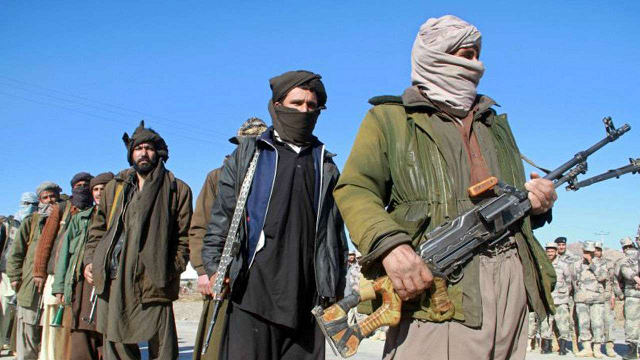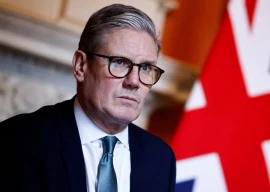
President Donald Trump said in an interview broadcast Monday that he wants to withdraw US forces from Afghanistan, but will leave a strong intelligence presence in the country to counter what he termed the "Harvard of terrorists."
Khalilzad claims Afghan peace talks entering new stage
The Taliban have refused to negotiate with President Ashraf Ghani, and a previous attempt to bring the insurgents together with government officials in Doha collapsed in April in a dispute over attendees.
Germany, a key player in international support for the post-Taliban government, and Qatar, which maintains contacts with the militants, said that they jointly extended invitations for dialogue in Doha on Sunday and Monday.
The Afghans "will participate only in their personal capacity and on an equal footing," Markus Potzel, Germany's special representative for Afghanistan and Pakistan, said in a statement released Monday by the US.
"Afghanistan stands at a critical moment of opportunity for progress towards peace," he said.
"An essential component of any process leading to this objective will be direct engagement between Afghans," he said.
The meeting comes after US Secretary of State Mike Pompeo paid a previously unannounced visit last week to Kabul where he voiced hope for a peace deal with the Taliban "before September 1."
The ambitious timeframe would allow a deal before Afghanistan holds elections in September, which Western officials fear could inject a new dose of instability.
Trump wants to pull all US troops from Afghanistan, believing that America's longest war - launched after the September 11, 2001 attacks - no longer makes military or financial sense.
But he said the US will "be leaving very strong intelligence, far more than you would normally think," in an interview with the Fox New Channel's "Tucker Carlson Tonight."
"It just seems to be a lab for terrorists... I call it the Harvard of terrorists," Trump said.
The Taliban have refused to halt their violence, believing that they have an upper hand as the US is eager to leave.
On Monday, at least six people were killed and dozens wounded - including 50 children - after the Taliban targeted the defence ministry with a powerful bomb.
Gunmen then stormed a nearby building, triggering a gun battle with special forces. Most of the injured children were hurt by flying glass, officials said.
Save the Children branded the attack "utterly deplorable," warning that "children's smaller bodies sustain more serious injuries than adults" and that the trauma of such attacks can stay with them for years.
The US has nonetheless not interrupted its seventh round of talks with the Taliban in Doha that started on Saturday.
"Once the timeline for the withdrawal of foreign forces is set in the presence of international observers, then we will begin the talks to the Afghan sides, but we will not talk to the Kabul administration as a government," Spokesperson of the Taliban's office in Qatar Suhail Shaheen tweeted.
Under a peace deal, the US plans to pull its roughly 14,000 troops from Afghanistan.
In return, the Taliban would provide assurances that they will never allow their territory to be a base for foreign attacks - the primary reason for the US invasion nearly 18 years ago.
Afghan leaders optimistic about US, Taliban peace deal
Zalmay Khalilzad, the US negotiator with the Taliban, said that dialogue among Afghans was an essential part of a peace deal.
"Mutual acceptance, seeking consensus, and agreeing to resolve political differences without force is what is needed to learn from the tragedy of the last 40 years," Khalilzad said, referring to Afghanistan's nearly incessant conflict since the Soviet invasion in 1979.
"I wish participants success," he tweeted.





1732354127-0/Untitled-design-(3)1732354127-0-270x192.webp)


1732344836-0/BeFunk_§_]__-(37)1732344836-0.jpg)








COMMENTS
Comments are moderated and generally will be posted if they are on-topic and not abusive.
For more information, please see our Comments FAQ